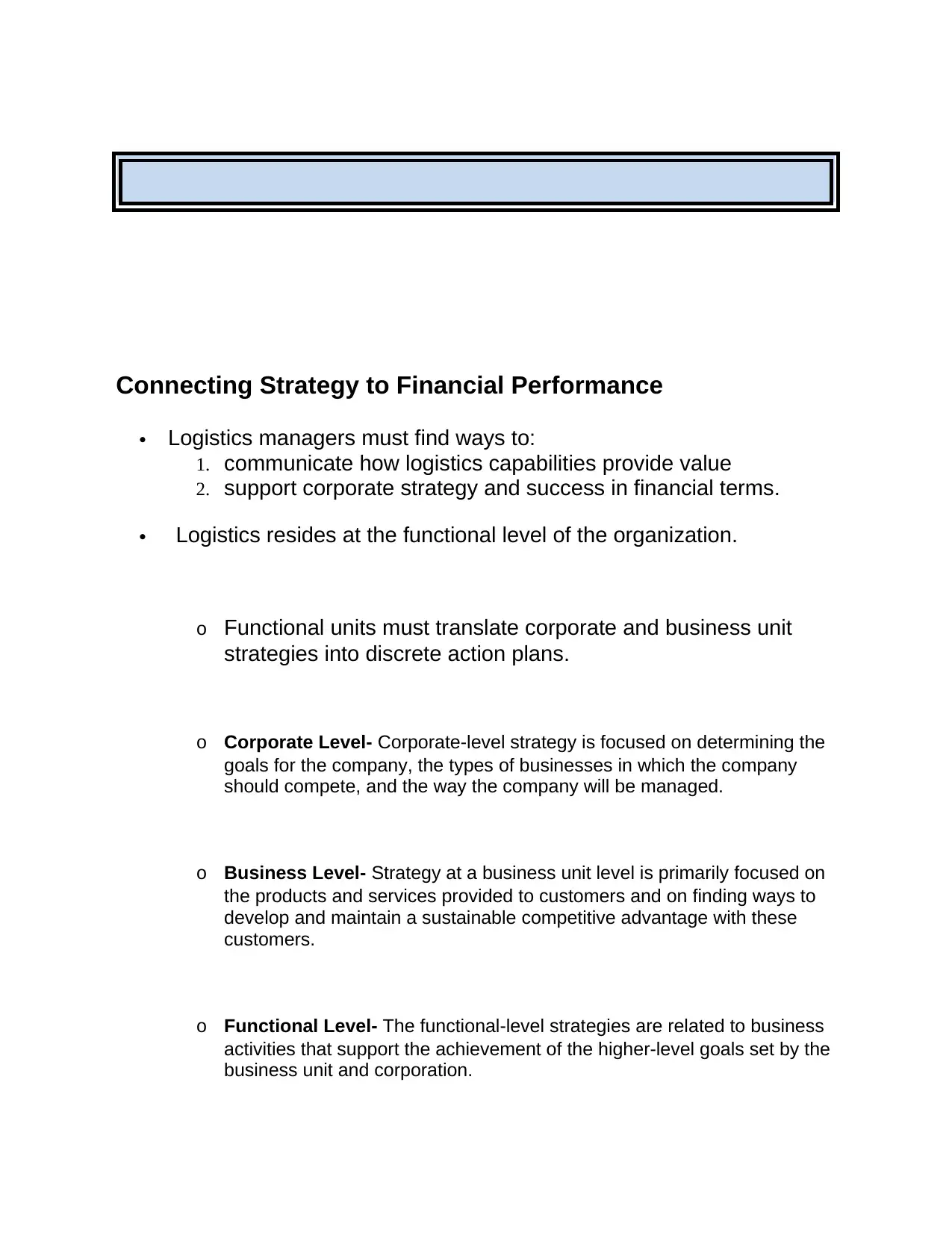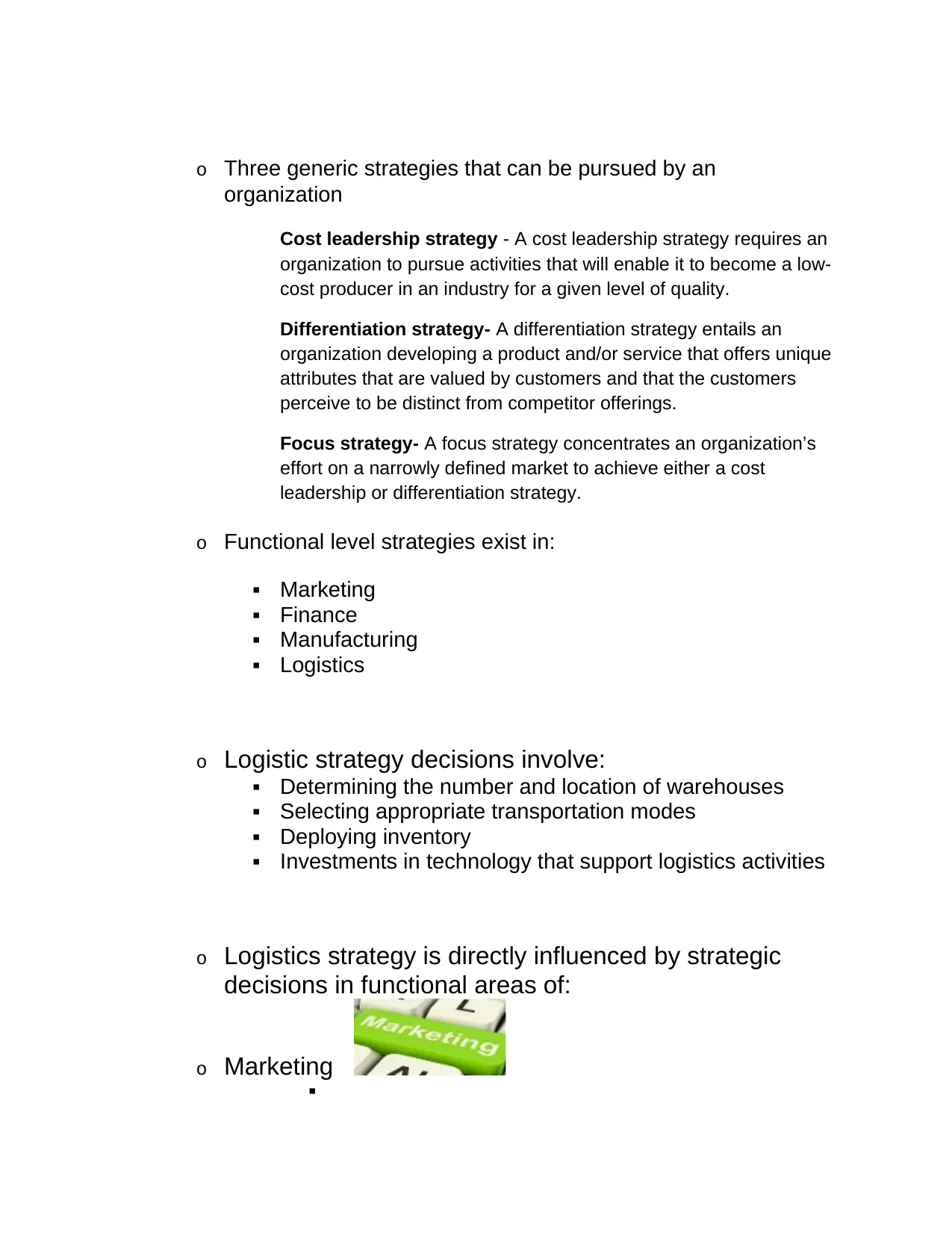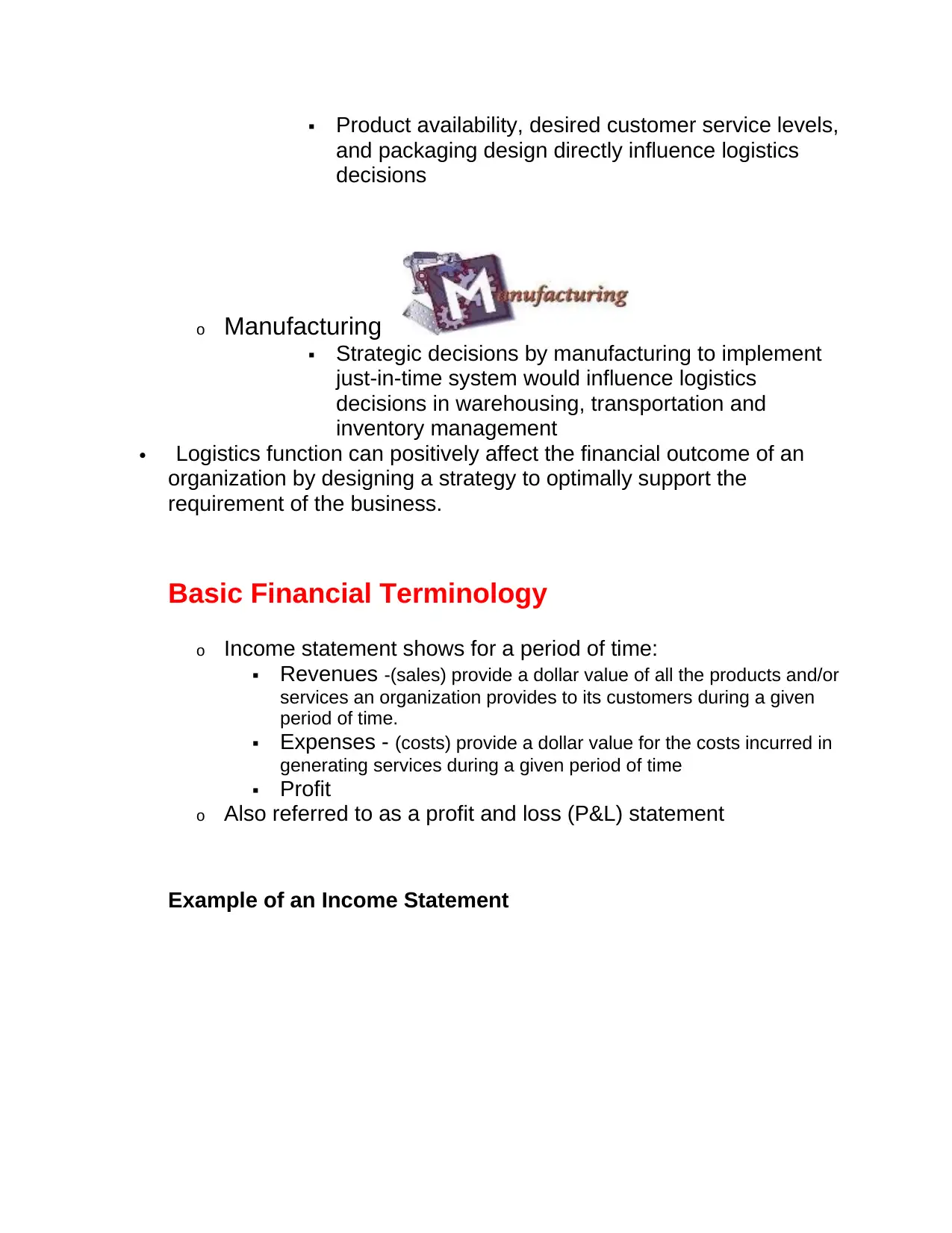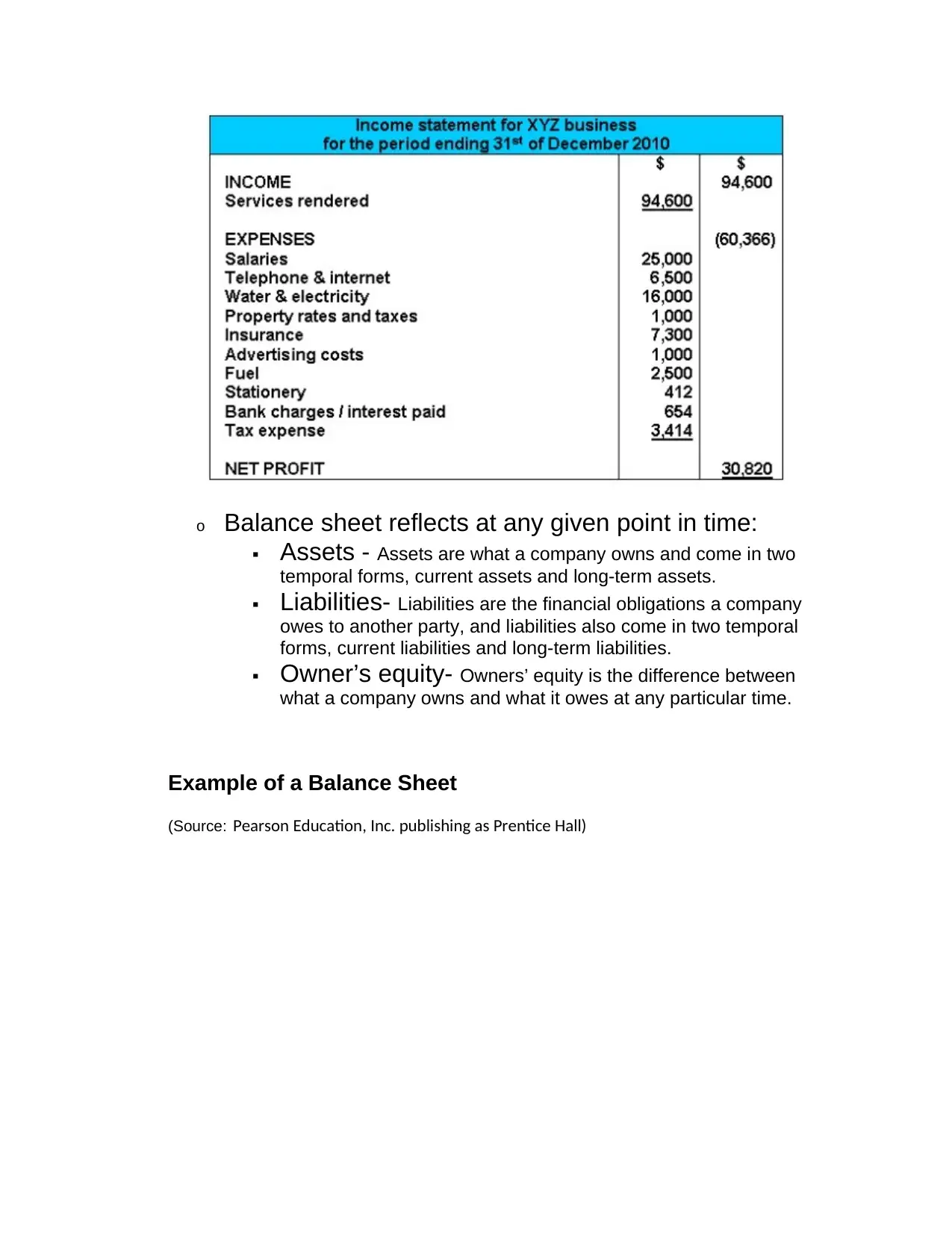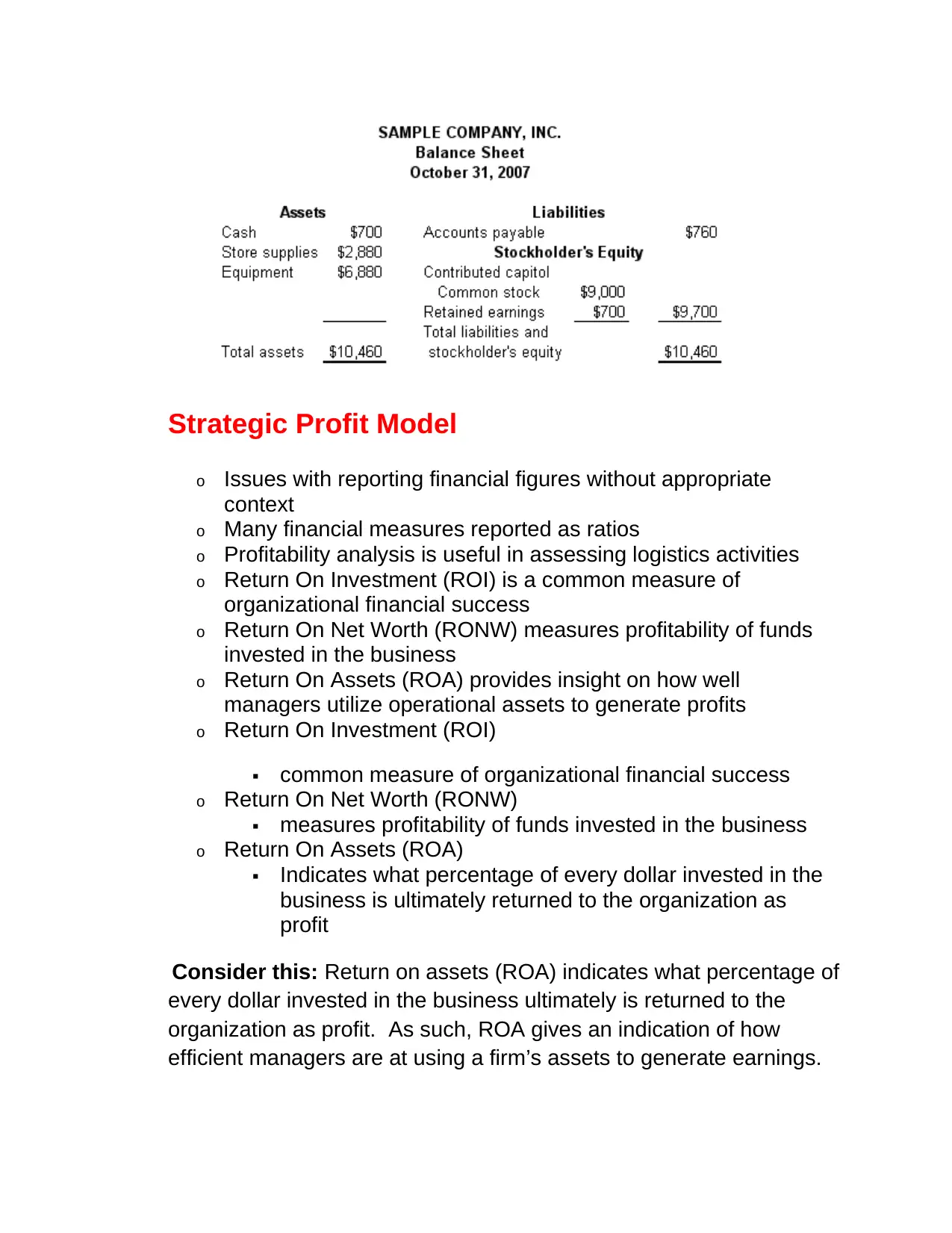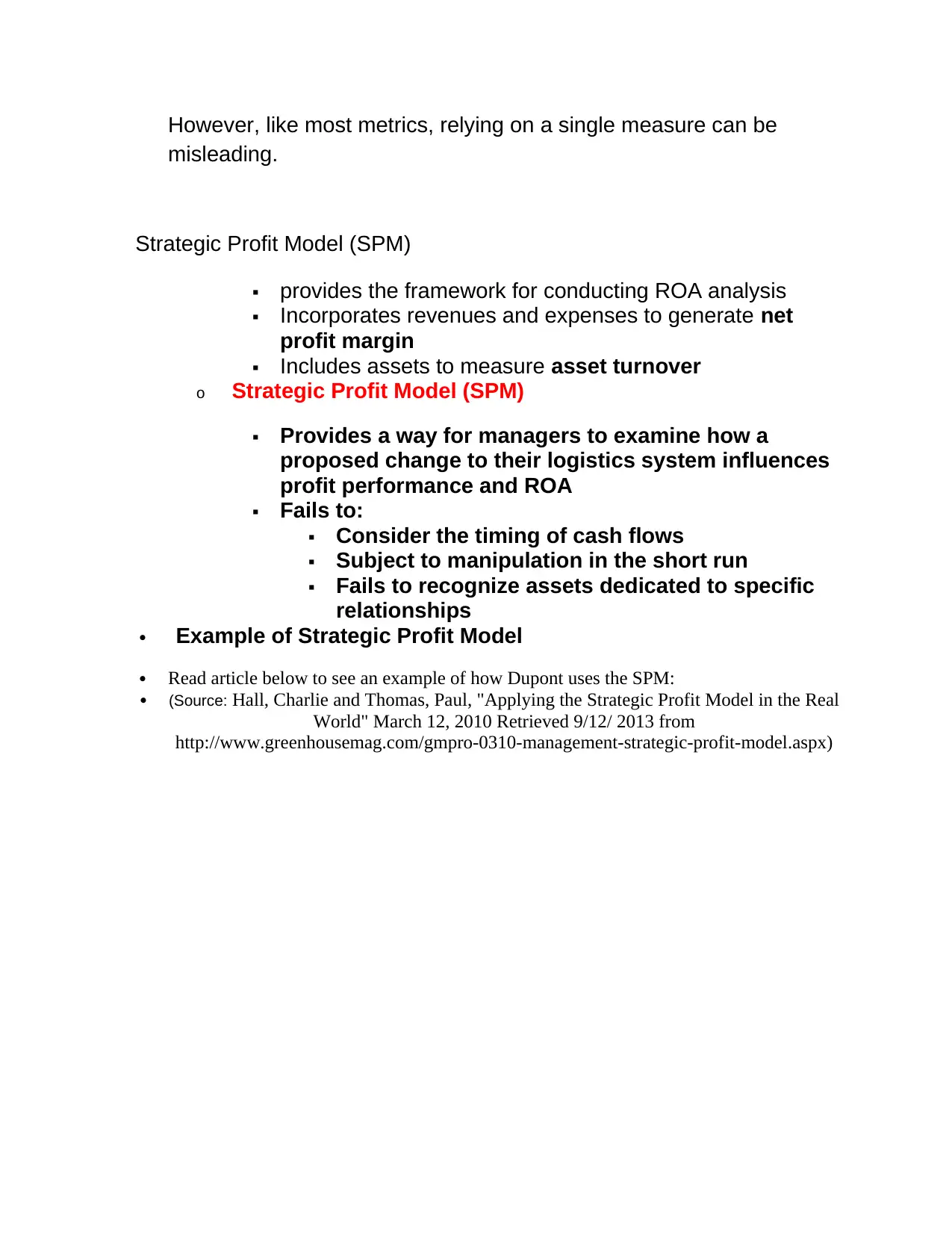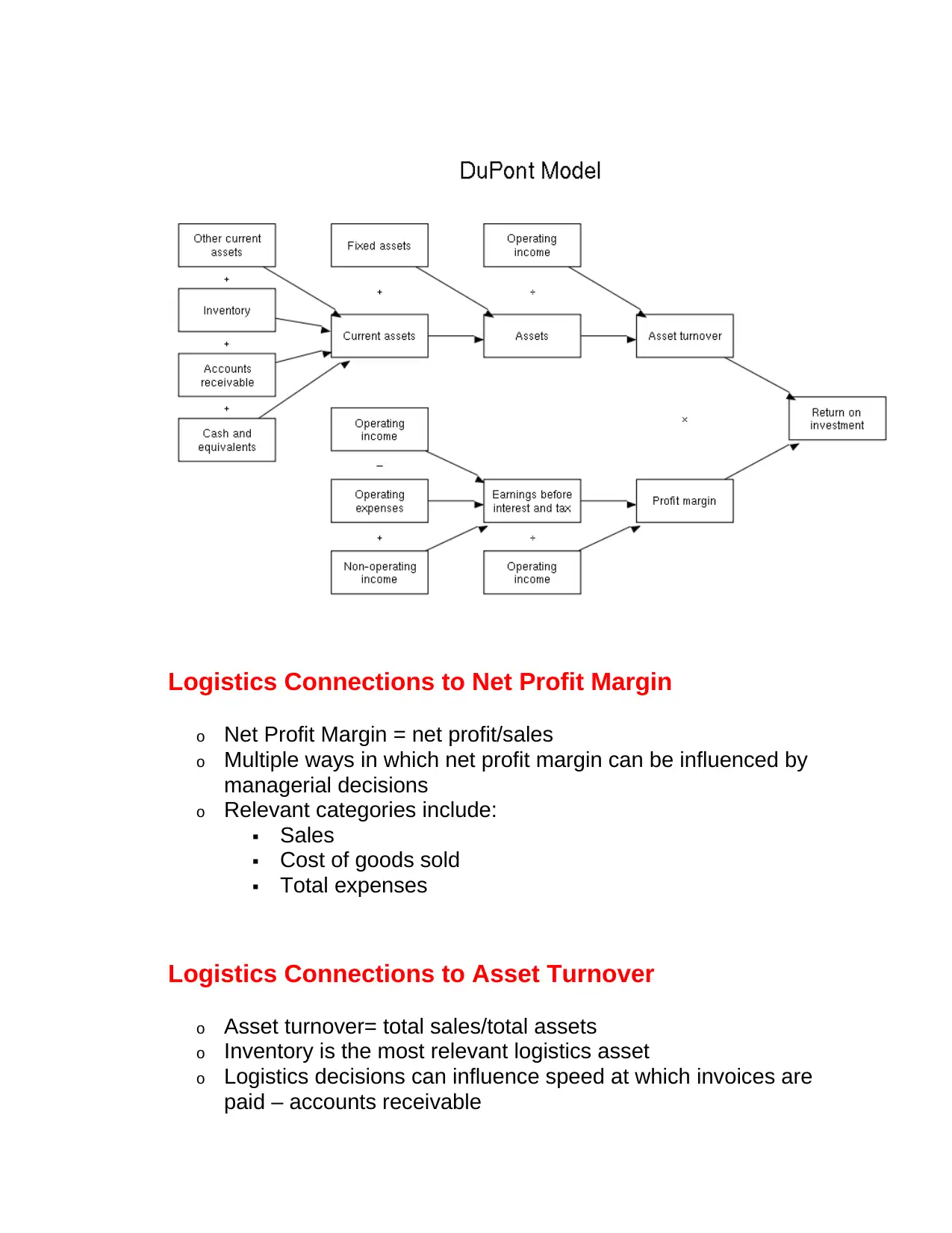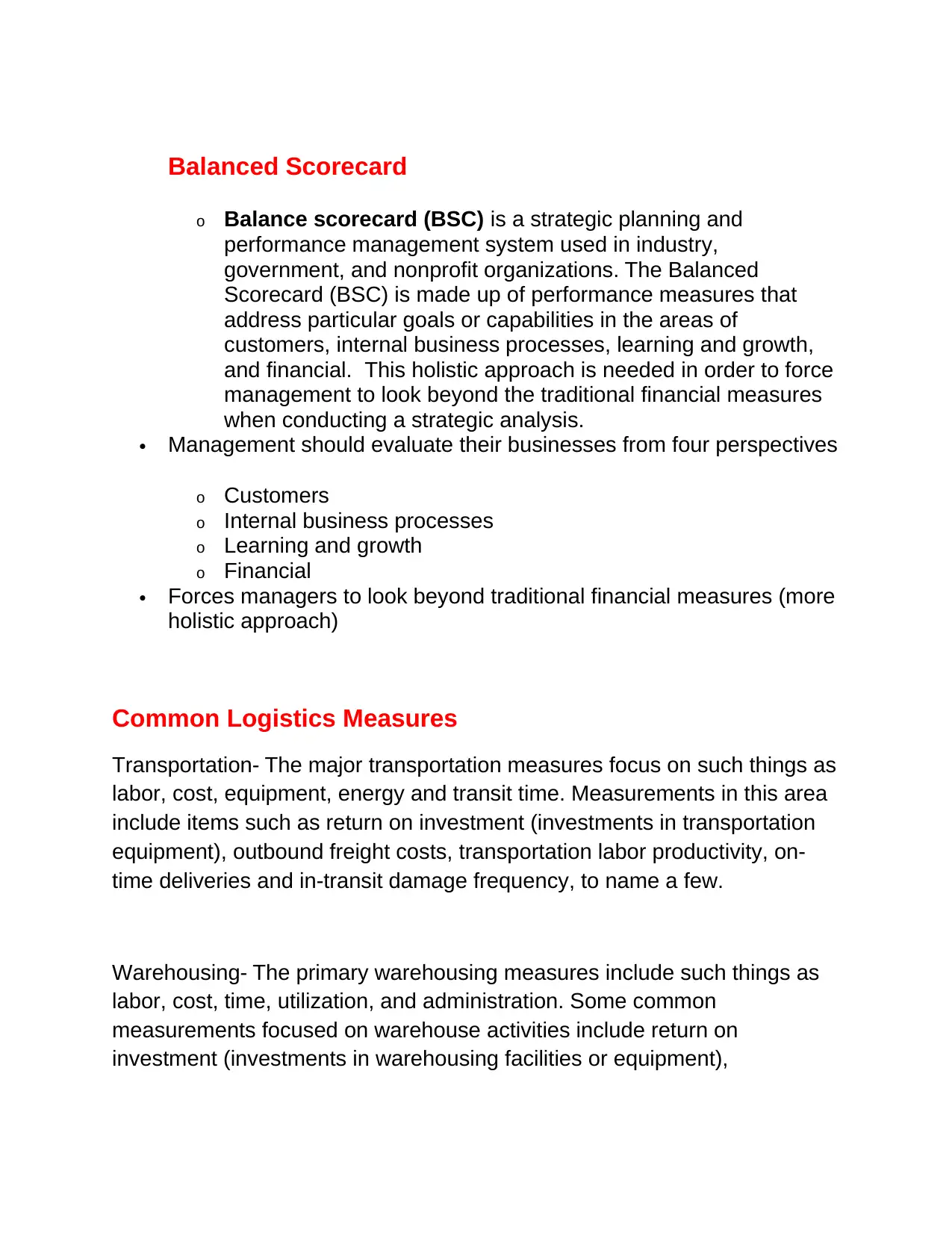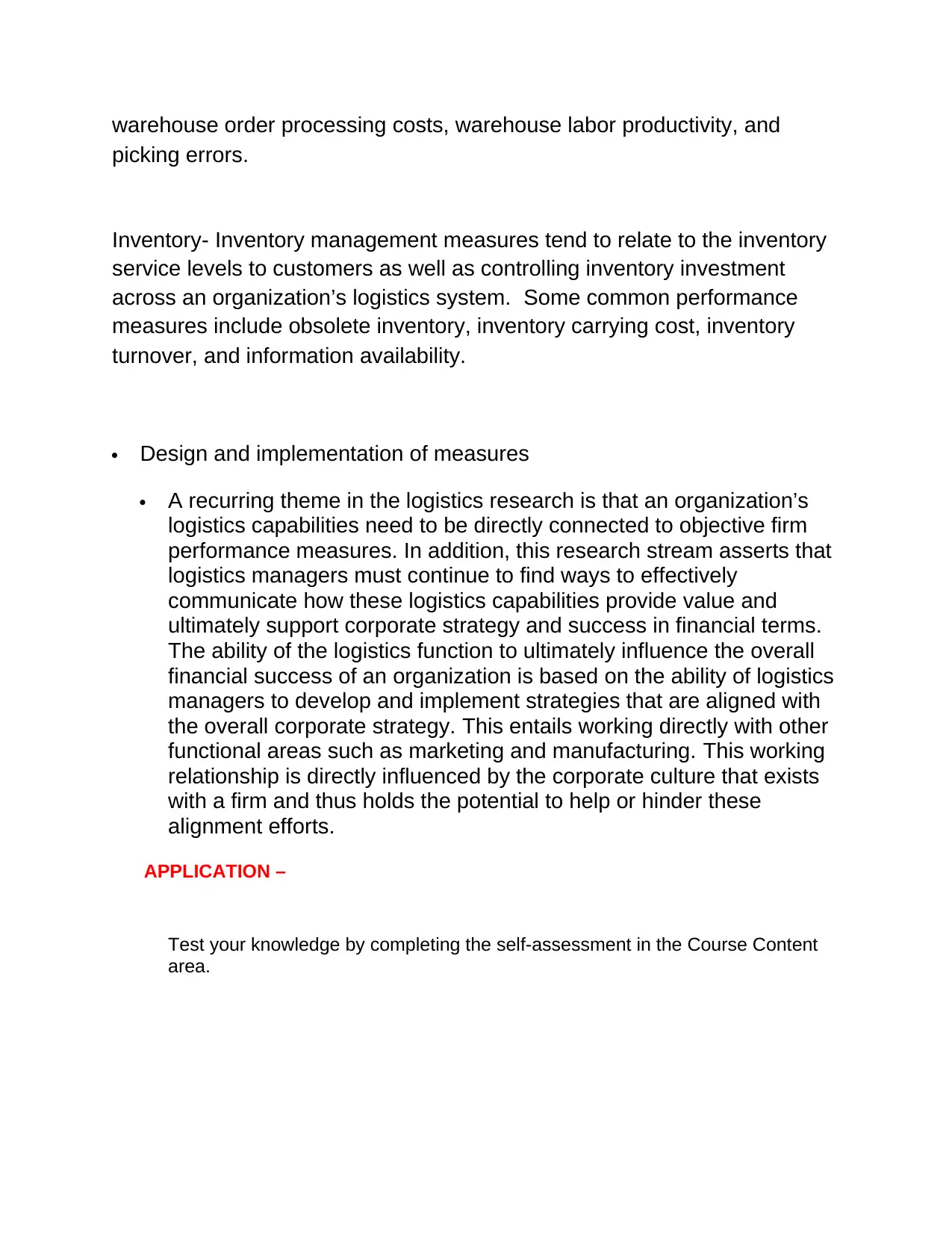The assignment content discusses the connection between strategy and financial performance, specifically focusing on logistics managers' role in supporting corporate strategy and success. The content highlights the importance of translating corporate and business unit strategies into discrete action plans at the functional level. It also explores three generic strategies: cost leadership, differentiation, and focus, as well as their impact on logistics decisions. Additionally, it introduces basic financial terminology, including income statements, balance sheets, return on investment (ROI), and strategic profit model (SPM). The SPM is used to analyze ROA and net profit margin, while also highlighting the importance of considering timing of cash flows, manipulation in the short run, and recognition of assets dedicated to specific relationships. Finally, it discusses logistics connections to net profit margin and asset turnover, as well as introduces the concept of a balanced scorecard (BSC) for strategic planning and performance management.
![[object Object]](/_next/static/media/star-bottom.7253800d.svg)
![[object Object]](/_next/static/media/star-bottom.7253800d.svg)
